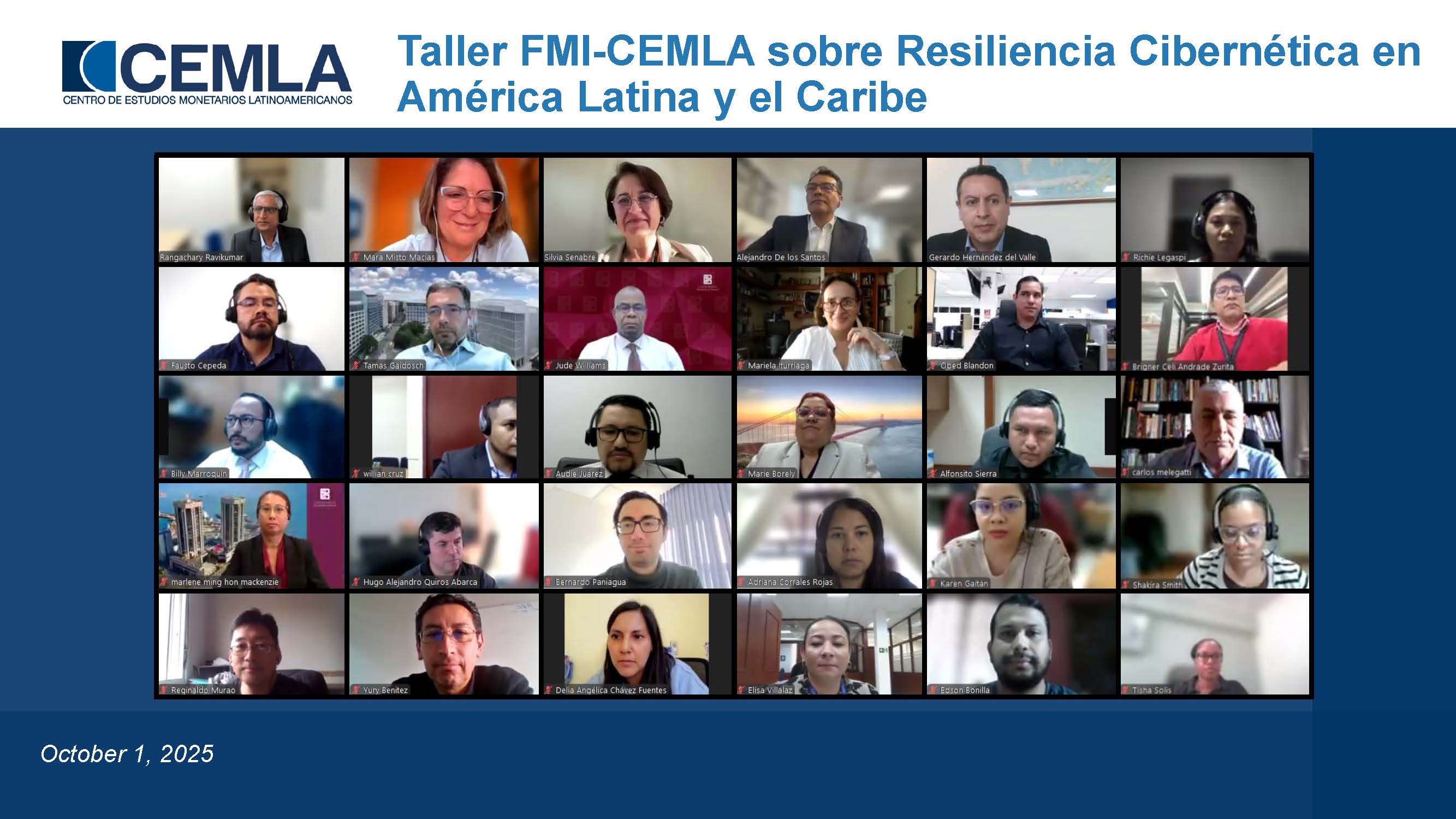

Disponible en Español ![]()
IMF-CEMLA Workshop on Cyber Resilience in Latin America and the Caribbean
October 1, 2025
Videoconference
The Directorate of Financial Market Infrastructures of CEMLA, with the technical support of the International Monetary Fund (IMF), organized the IMF-CEMLA Workshop on Cyber Resilience in Latin America and the Caribbean, held virtually on October 1, 2025.
The event addressed the current global landscape in cybersecurity, highlighting the opportunities and challenges arising from recent technological developments. It also presented recommendations for cyber incident management and preparedness for future scenarios.
The workshop was structured into four sessions. The first session, led by Rangachary Ravikumar, provided an overview of the global cyber threat landscape and concluded with regulatory recommendations. Among these, he emphasized the importance of reporting cyber incidents to supervisory authorities to strengthen oversight and promote a preventive approach focused on preparedness and mitigation of future incidents, rather than penalizing affected entities.
The second session featured a panel discussion with experts from the Banco de España, Banco de México, and the Banco Central de la República Argentina. The discussion focused on the risks associated with outsourcing services in the financial sector and on the regulatory initiatives implemented in different jurisdictions to address these challenges.
The third session, conducted by Emran Islam, focused on testing and simulation exercises carried out by various institutions. International reference frameworks such as TIBER, CBEST, and CORIE were reviewed, concluding with recommendations aimed at strengthening cooperation and mutual support among participating entities.
Finally, the fourth session, presented by Tamas Gaidosch, examined technological advancements that introduce new risks for the financial industry. Topics included artificial intelligence, with particular attention to deepfakes and large language models (LLMs), as well as the potential impact of quantum computing, which could compromise the security of current cryptographic algorithms in the coming years.

